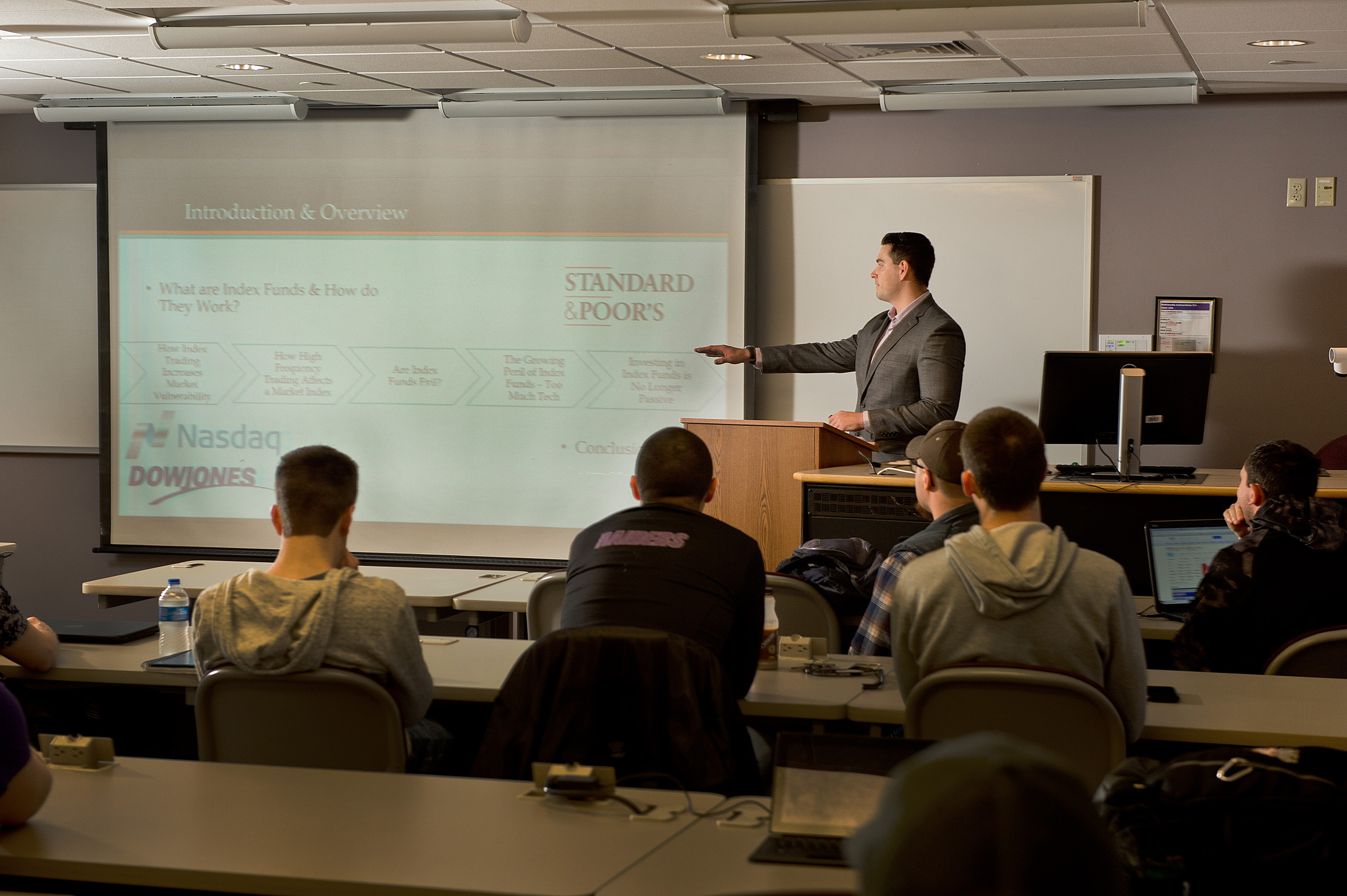The minor in economics at the University of Mount Union covers economic principles including micro, macro, managerial, and global economics. Students explore topics such as financial accounting and quantitative methods while gaining valuable skills for a career in the field. The economics minor combines practical preparation with a liberal arts foundation, which guides students as they seek solutions for a broad spectrum of challenges.
Economics students will acquire an overall understanding of business organizations and develop a deeper grasp of the intricacies involved with international operations. Students explore the impact of politics, different cultures, and international diplomacy on the opportunities available to the corporations of the world. View success data for economics and other School of Business programs.
-
Curriculum
Courses for the program cover economic principles including micro, macro, managerial, and global economics. As an economics minor, you will also explore courses in financial accounting, quantitative methods, personal life, and career plans. Our program combines practical preparation with a liberal arts foundation, which will guide you as you seek solutions for a broad spectrum of challenges.
Learning Objectives
- Students will demonstrate their knowledge of the fundamental and technical concepts of economics.
- Students will apply the basic theories of economics in critical thinking and problem solving.
- Students will be able to identify and use economics terminologies in oral and written communications.
- Students will demonstrate an awareness of their role in the global economics environment.
- Students will be able to make decisions wisely using cost-benefit analysis.
- Students will demonstrate a sense of responsibility and a capacity for service.
- Students will demonstrate the ability to recognize when change is appropriate, to adapt to change as it occurs, and to take the lead in creating change as the country’s economic environment changes.
- Students will demonstrate an ability to examine their personal and professional beliefs and opinions and an understanding of the balance in life between work, play, family, and friends.
- Students will demonstrate an understanding of their personal interests, abilities, strengths, and weaknesses as they pertain to professional career fields.
- Students will demonstrate a basic understanding of career options available to them and will establish career objectives.
-
Experiential Learning
Students who choose to minor in economics at Mount Union have ample opportunities to get “real-world” experience outside of the classroom. By getting involved in extracurricular opportunities and student organizations, you can strengthen your skills and knowledge of economics, both of which are critical to career success. These opportunities, which complement classroom learning, include:
- Internships
- Independent research
- Research with faculty or student peers
- Research-based courses
Student Organizations
Delta Mu Delta is an honor society specifically for students with business-related majors at ACBSP-accredited schools. Each member must maintain a 3.2 GPA and be within the top 20% of their program.
